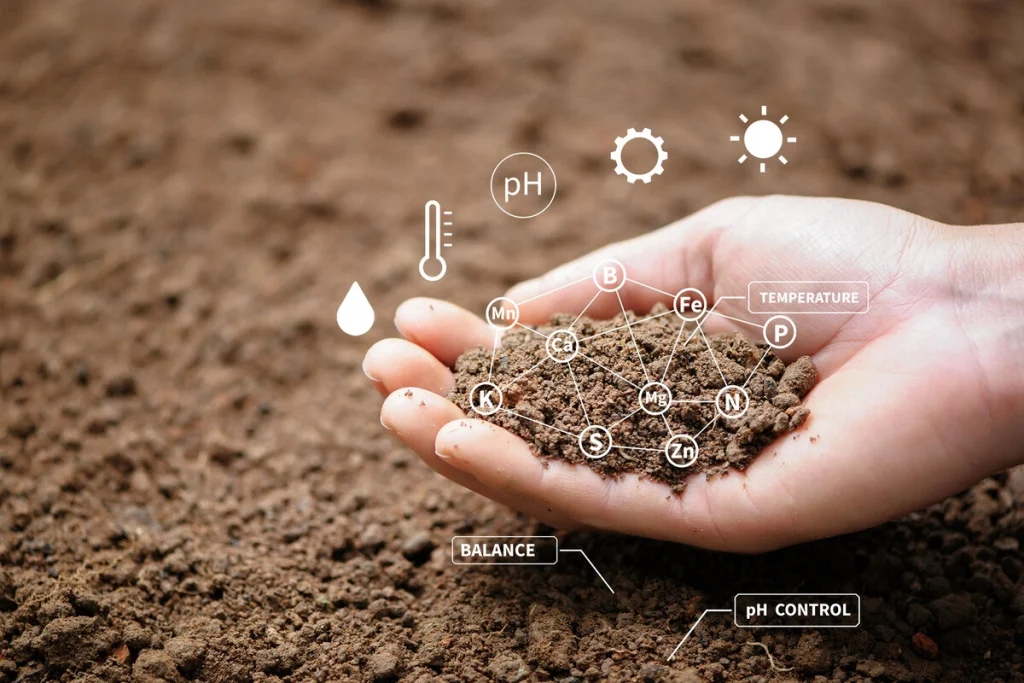Bentonite Clay as a Natural Remedy

The effect of bentonite on body function Detoxification
The Detoxifying Benefits of Bentonite Clay
Bentonite clay has been recognized for its powerful detoxifying properties. This effect is largely attributed to its poly-cationic nature, which allows it to absorb negatively charged toxins from the body.
Bentonite Clay and Toxin Detoxification
One example of its effectiveness is in the detoxification of T-2 toxin, a harmful mycotoxin produced by Fusarium fungi. In a study where rats were given bentonite clay for two weeks before exposure to T-2 toxicosis, significant results were seen. Fecal excretion of the toxin increased, while muscle toxin levels decreased, suggesting that bentonite clay plays a role in mitigating the harmful effects of T-2 toxicosis.
Bentonite and Aflatoxin Reduction
Aflatoxins are potent, cancer-causing chemicals produced by certain molds that primarily affect liver function. Bentonite clay has been shown to significantly reduce aflatoxin concentration. A 1989 study by Dvorak et al. demonstrated that bentonite could decrease the concentration of water aflatoxin to 66% of its original level. Further studies, such as one by Schell et al., found that adding bentonite to aflatoxin-contaminated corn improved liver function in pigs without affecting mineral metabolism. Additionally, in rabbits fed aflatoxin-contaminated diets, bentonite enhanced reproductive health, including semen quality and overall reproductive performance.
Numerous animal studies confirm that bentonite can effectively bind aflatoxins in contaminated feed, reducing or eliminating toxicity. This also reduces the bioavailability of aflatoxin M1, a toxic metabolite of aflatoxin B1, in the Ghanaian population. The safety of dietary bentonite has been confirmed in various human and animal studies, with no negative effects on the serum concentrations of important vitamins and minerals.
Bentonite and Pesticide Detoxification
Organochlorine pesticides, which are persistent pollutants in the environment, are absorbed by bentonite due to its cationic properties. Studies have shown that bentonite can absorb pesticides like endrin and paraquat through hydrophobic and charge-dipole interactions. Bentonite has proven effective in reducing the harmful effects of paraquat, an herbicide known for its toxicity to mammals, including humans. It acts as an adsorbent, facilitating the removal of paraquat from the system, thus mitigating its toxic effects.
Bentonite in Livestock Toxin Detoxification
Bentonite’s detoxifying properties extend to livestock as well. Lantana camara, a plant toxic to animals, caused poisoning in cattle in one study. When treated with bentonite, five out of six calves recovered, while none survived in the control group. Compared to activated charcoal, bentonite-treated cows showed more appropriate plasma bilirubin levels. This suggests that bentonite could serve as a more cost-effective and efficient treatment for livestock poisoning.
Metal Toxicity and Bentonite
Lead poisoning is a well-known condition that can damage multiple organs. While bentonite clay absorbs various organic and inorganic materials in the gastrointestinal (GI) tract, it does not disrupt mineral metabolism. In rats, bentonite helped decrease serum creatinine by absorbing it in the GI tract and accelerating its excretion. This indicates that bentonite might offer benefits for renal health by promoting the excretion of harmful substances like creatinine and urea.
Antibacterial Effects of Bentonite
With the rise of antibiotic-resistant bacteria, there is an increasing demand for alternative antibacterial agents. Bentonite, a natural mineral, has been found to possess antibacterial properties. It can absorb harmful bacteria like Escherichia coli, and when mixed with water, it has been shown to kill a wide spectrum of bacteria. Modified montmorillonite, a type of bentonite, also exhibits antibacterial effects, which could provide a novel approach to combating bacterial infections.
Bentonite and Immune Modulation
Bentonite may influence the immune system, as particles of bentonite have been shown to inhibit red blood cell proliferation and antibody response in vitro. This could suggest a role for bentonite in modulating immune responses.
Bentonite and Bone Health
Although some studies show that bentonite may slightly reduce calcium incorporation into bones, its use as a supplement in nutrient-deficient animals did not compensate for calcium loss in the tibia. More research is needed to better understand its role in bone health.
Cancer Treatment Potential of Bentonite
Montmorillonite, a form of bentonite, has been explored as a drug delivery system for cancer treatments such as Paclitaxel and 5-fluorouracil. Additionally, recent studies suggest that bentonite might inhibit the growth of cancerous cells, particularly in glioblastoma, a type of brain cancer. This opens the possibility for bentonite as a potential adjunct in cancer therapy.
Bentonite for Skin and Hair Health
Bentonite has a long history of use in treating skin conditions. It is effective in alleviating allergic reactions to poison ivy and oak, as well as improving chronic hand dermatitis. Bentonite’s ability to act as a barrier against toxic compounds has been demonstrated, especially for organophosphorus chemicals. Furthermore, bentonite-based sunscreen products have shown to be more effective in absorbing UV light compared to commercial products. It also promotes the healing of skin lesions and ulcers.
For hair, although scientific studies are scarce, anecdotal evidence suggests bentonite improves wool growth in sheep, hinting at potential benefits for human hair care as well.
Bentonite in Gastrointestinal Health
Bentonite has been used to treat various gastrointestinal disorders, including diarrhea, irritable bowel syndrome (IBS), and spastic colitis. In a study involving patients with IBS, bentonite helped improve bowel habits, especially in those with constipation-predominant IBS. Its use in pigs has also shown improved growth and intestinal health, indicating its potential benefits for digestive health.
Environmental Benefits of Bentonite
Bentonite’s ability to filter volatile organic compounds (VOCs) in indoor air also highlights its potential use in reducing harmful pollutants in homes and offices. It has been shown to absorb VOCs, which can negatively impact human health, thereby improving air quality in enclosed spaces.
Adverse Effects and Safety of Bentonite
While bentonite offers numerous health benefits, it is not without potential side effects. Some in vitro studies have shown cell lysis in certain cell lines, and there have been reports of bentonite toxicity in cats and children when ingested in large quantities. Proper dosing is crucial to avoid adverse effects such as electrolyte imbalances.
Conclusion
Bentonite clay is a versatile, natural mineral with numerous health benefits. From detoxifying harmful substances like pesticides, mycotoxins, and heavy metals to improving skin and digestive health, bentonite holds great promise. Further research is needed to explore its full potential as a therapeutic agent. Given its wide range of benefits and minimal side effects when used properly, bentonite clay could play a significant role in modern medicine.






